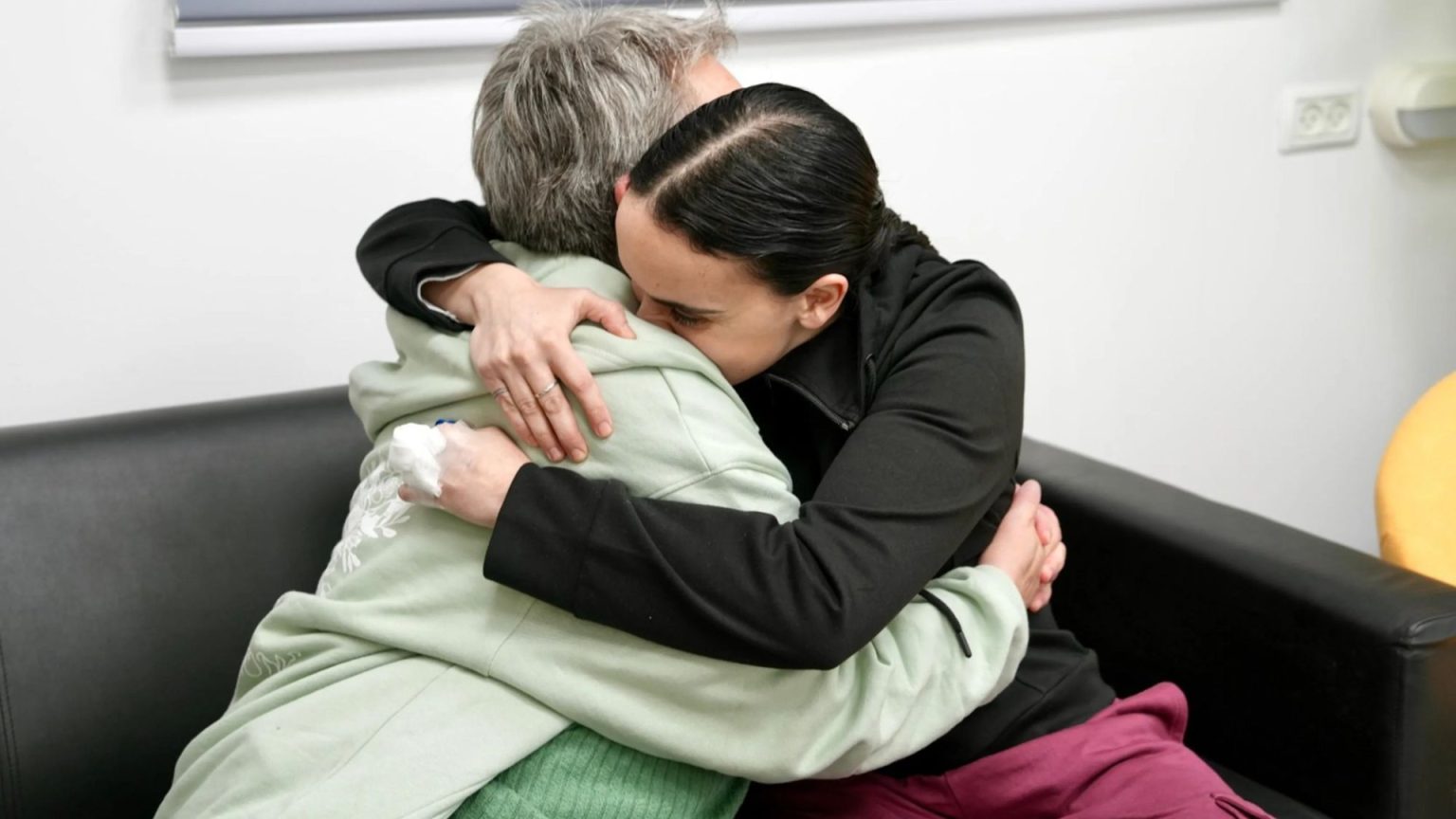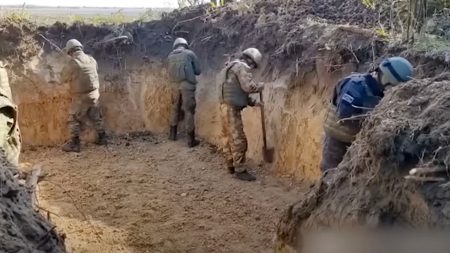British-Israeli hostage Emily Damari, 28, along with Israeli captives Romi Gonen, 24, and Doron Steinbrecher, 31, were released by Hamas after 471 days of captivity in Gaza. Their release was marked by a tense handover, with the women escorted through crowds of Hamas supporters before being transferred to the Red Cross. Damari, whose hand was severely injured during her capture, offered a defiant salute as she was freed. The women were then transported to Israeli territory for medical and psychological assessments and were reunited with their families. Damari’s mother, Mandy, shared her joy online, posting a photo with her daughter and the caption, “Emily’s home.”
The release marks the beginning of a phased handover of 33 hostages agreed upon as part of a fragile ceasefire between Israel and Hamas. The truce, which almost collapsed due to delays and disputes over the release process, finally took effect, allowing the Red Cross to retrieve the women. Hamas attempted to frame the release as a victory parade, parading the hostages through cheering crowds and armed militants, adding to the already traumatic experience for the women. This initial release followed intense negotiations and a period of agonizing uncertainty for the hostages’ families.
Emily Damari’s ordeal began on October 7th when Hamas militants stormed her kibbutz, killing her dog and shooting off two of her fingers before dragging her into captivity. According to accounts from previously released hostages, Damari, along with others, was held in underground tunnels, subjected to torture, isolation, and deprived of basic necessities. They faced constant threats, including the fear of rape and execution, compounded by the ongoing Israeli bombardment of Gaza. Despite these horrific conditions, reports suggest Damari remained resilient and helped maintain morale among her fellow captives.
The three freed women are now facing a long road to recovery, requiring extensive physical and psychological support. Health officials anticipate a minimum four-day hospital stay, acknowledging the deep trauma experienced even by those held for shorter periods. Previous releases have revealed the debilitating effects of captivity, with freed hostages suffering from starvation and severe health issues. Emily’s family expressed the profound pain they endured during the months of uncertainty, unsure if she was even alive. Their lawyer spoke of the constant anxiety and the desperate hope for her safe return.
The ceasefire and hostage release have been welcomed by the international community, with UK Prime Minister Keir Starmer expressing relief and acknowledging the long-awaited reunion of the hostages with their families. The exchange involved the release of 90 Palestinian prisoners, signifying a delicate balance in the ongoing conflict. However, the underlying tensions remain, and the success of the ceasefire and subsequent hostage releases will be crucial in determining the future stability of the region. The remaining stages of the hostage release will unfold over the next six weeks, bringing hope to other families awaiting the return of their loved ones.
Emily Damari, described as a beloved and popular member of her community, was known for her kindness and involvement in local youth activities. Her love for barbecuing, karaoke, and her collection of hats reflect a vibrant personality now overshadowed by her traumatic experience. Romi Gonen, a vivacious young woman with a passion for dancing and traveling, and Doron Steinbrecher, a dedicated veterinary nurse, are also beginning the process of reclaiming their lives after enduring unimaginable hardship. Their stories highlight the human cost of the conflict and the enduring resilience of the human spirit in the face of adversity.











